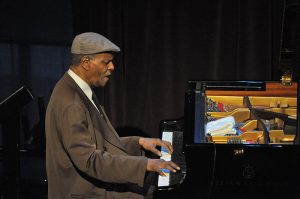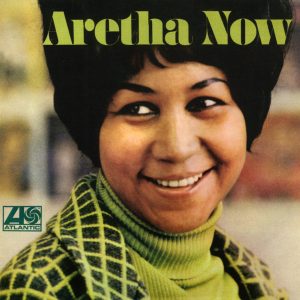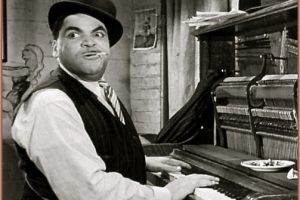Music is full of funny connections, especially when viewed decades later.
It’s strange to think that that only 25 years elapsed between the end of World War II and the breakup of The Beatles. So much changed during this compressed time frame (and the few years after) that interesting cross-pollinations inevitably occurred. For instance, before gaining fame with Little Feat, Lowell George worked as a studio musician with both Frank Sinatra and Frank Zappa. (That leads to a funny mental picture of Sinatra singing “Moving to Montana” or “Camarillo Brillo”).
Nelson Riddle’s greatest fame came as an arranger for Sinatra. I am not knowledgeable enough to adequately describe what he did, but feel safe in saying that his sound was full, lush and mellow.
The odd connection is that Riddle, who personified classy, tuxedo-clad jazz — he also worked extensively with Nat King Cole, Ella Fitzgerald and many others — got a call in 1982 from a versatile and supremely talented rock and roll singer by the name of Linda Ronstadt. She loved jazz and wanted to record the standards. She wanted Riddle to do the arrangements. The call led to negotiations and the negotiations led to three albums.
Nelson Riddle: A “Master of Mood and Subtlety”
It is easy to forget the importance of Nelson Riddle. Here is a quote from Jonathan Schwartz, a New York City disc jockey who, like Ronstadt, made the transition from rock to jazz. It appears at Riddle’s website and apparently was a promo for the arranger’s autobiography:
Billie Holiday, Frank Sinatra, Louis Armstrong and Nelson Riddle stand, in my judgement, at the spine of American popular music. Nelson’s voice, like the others, changed our thinking, pushed us forward, addressed us with startling originality. The scope of his talent dwarfs all other arrangers. His obvious pleasure in delegating authority-to the oboe, flute, bass trombone, muted trumpet, organ, bassoon, vibraphone-while still remaining in full control of his administration; his overseeing without overstating the strings; his own private melodies that whisper respectfully under the Gershwin or Kern or Rodgers on the table; his out and out passion that informs every bar of every arrangement. All these things are actively combined in the immense body of work that stands as one of the great achievements in American arts. To find that Nelson, personally, is a droll, tender, reclusive and richly intelligent fellow, adds a special kind of luster to my fondness for him, devotion to him. The book you are holding is about music. There is no more qualified an author available…Anywhere.
This excerpt from Steve Huey’s profile at AllMusic also is long and also is telling:
Riddle was a master of mood and subtlety, and an expert at drawing out a song’s emotional subtext. He was highly versatile in terms of style, mood, and tempo, and packed his charts full of rhythmic and melodic variations and rich tonal colors that blended seamlessly behind the lead vocal line. He often wrote specifically for individual vocalists, keeping their strengths and limitations in mind and pushing them to deliver emotionally resonant performances. As such, Riddle was perfectly suited to the task of framing vocal interpreters, as opposed to just singers; he was most in sync with the more nuanced and artistically ambitious vocalists, like Sinatra. Riddle knew how to lay back and bring certain lyrics or vocal subtleties to the forefront, and how to add countermelodies that emphasized other lyrics, or made important transitions. He could draw the listener in with catchy embellishments, challenge them with adventurous harmonies, and build to climaxes that faded into surprisingly restrained endings. In short, Riddle was everything a top-notch singer could ask for.
Above is “Night and Day” featuring Sinatra and below is “Someone to Watch Over Me,” with Ronstadt on vocals.
Nelson Riddle’s website, Wikipedia, AllMusic and Ultimate Classic Rock were used in research for this post.










Add Comment